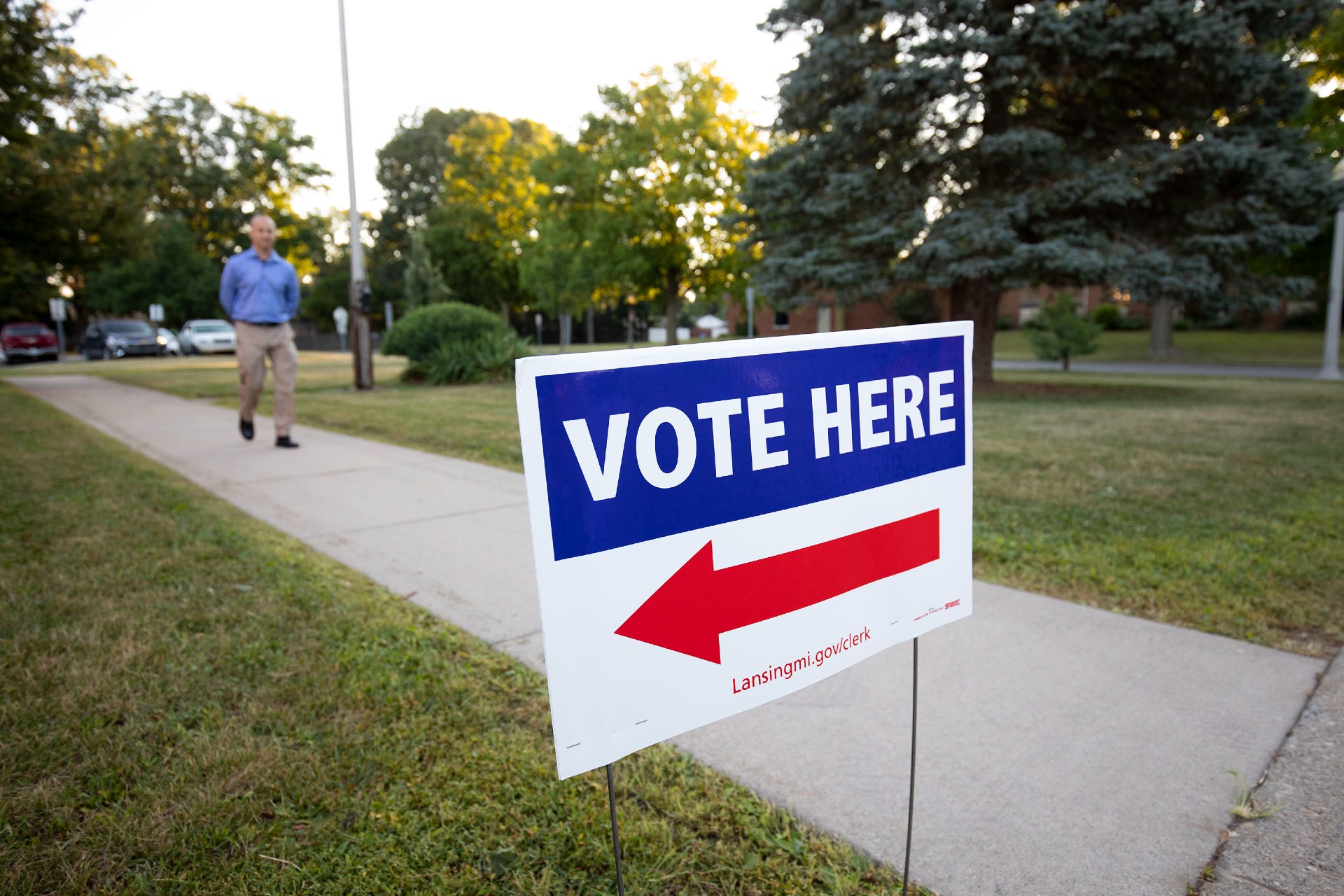
A voter arriving to cast their ballot at a polling location in Lansing during the Michigan Primaries. Via Tribune Media.
By: Jacob Kuiper
Staff Writer
2022 offers an election season for Michiganders with major competitive races up and down the ticket. Capping the ballot off are three ballot measures that could have major implications for state government term limits, voting and reproductive rights.
Proposal 22-1
This proposed constitutional amendment would:
- Require members of legislature, governor, lt. governor, secretary of state, and attorney general to file annual public financial disclosure reports after 2023.
- Require legislature implement but not limit or restrict reporting requirements.
- Replace current term limits for state representatives and state senators with a 12-year total limit in any combination between house and senate.
What this would change:
Currently, members of the Michigan State Senate are limited to two 4-year terms and members of the State House of Representatives are limited to three 2-year terms. This proposal would reduce the total from 14 years to 12 years but would remove restrictions on how long a politician could serve in one chamber.
This proposal would also add a personal financial disclosure law for public servants. This would require them to reveal information about their finances, relationships, professions, and income. Michigan is one of only two states in the country to not have financial disclosure laws for state politicians.
Proposal 22-2
This proposed constitutional amendment would:
- Recognize a fundamental right to vote without harassing conduct.
- Require military or overseas ballots be counted if postmarked by election day.
- Provide voter right to verify identity with photo ID or signed statement.
- Provide voter right to single application to vote absentee in all elections.
- Require state-funded absentee-ballot drop boxes, and postage for absentee applications and ballots.
- Provide that only election officials may conduct post-election audits.
- Require nine days of early in-person voting.
- Allow donations to fund elections, which must be disclosed.
- Require canvass boards certify election results based only on the official records of votes cast.
What this would change:
- Right to vote: the right to vote on a secret ballot is already in the state constitution but “harassing conduct” is not specifically forbade.
- Military or overseas ballots: this amendment would allow ballots of military personnel and others overseas to be received within six days after the election if it is postmarked by election day.
- Voter ID: this amendment would solidify it into the state constitution.
- Absentee voting: this amendment would allow a single absentee application to apply to all future elections instead of having to apply every election. Also, currently voters may have to pay postage to mail in ballots, this amendment would require all absentee applications and ballots be prepaid.
- Ballot drop boxes: this amendment would require at least one state-funded drop box for every municipality, and at least one for every 15,000 voters in municipalities with more than 15,000 voters, accessible 24/7 for 40 days before each election and until 8 p.m. on election day.
- Early voting: this amendment would require a minimum of nine days of in-person voting for all statewide and future elections, from the second Saturday before to the Sunday before an election.
- Certifying elections: this amendment would require election results to be certified based on the official record of votes cast and clarify that the Board of State Canvassers is the only body authorized to certify elections for statewide or federal offices.
- Post-election audits: this amendment would forbid officers or members of the governing body of a political party and precinct delegates from having any role in an election audit.
- Election funding: this amendment would allow the acceptance of publicly disclosed charitable donations and contributions to conduct and administer elections.
Proposal 22-3
This proposed constitutional amendment would:
- Establish new individual right to reproductive freedom, including right to make and carry out all decisions about pregnancy, such as prenatal care, childbirth, postpartum care, contraception, sterilization, abortion, miscarriage management, and infertility.
- Allow state to regulate abortion after fetal viability, but not prohibit if medically needed to protect a patient’s life or physical or mental health.
- Forbid state discrimination in enforcement of this right; prohibit prosecution of an individual, or a person helping a pregnant individual, for exercising rights established by this amendment.
- Invalidate state laws conflicting with this amendment.
What this would change:
Currently abortion in Michigan is legal prior to fetal viability (approximately 23-26 weeks). After viability, an abortion can only be performed to preserve the life of the mother. Because Roe v. Wade was overturned, Act 328 of 1931 of Michigan’s penal code, which bans abortion at the state level, could become enforcable. For now, a Michigan court has put a temporary hold on the law, but that decision is not final and is being challenged. Without any consitutional protections, regulations on abortion would be left up to state government and the Michgian Supreme Court.
This amendment would establish the right to abortion in the Michigan constitution and potentially allow access to abortion to later statges of pregnancy. It would also lift certain restrictions that have previously been in place and establish additional rights to a wider range of reproductive health services.

